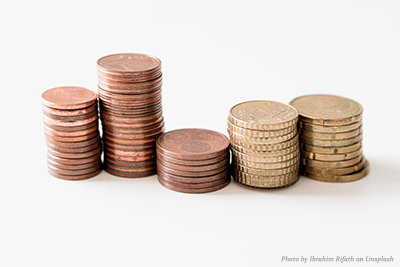
Recovery of Denied VAT and CWT Refund
By Atty. Irwin C. Nidea, Jr.
 Many taxpayers have millions of pesos that are recorded in their books as unutilized input value-added tax or excess creditable withholding tax. Unfortunately, in many instances, they become paper assets when there is no output VAT or income tax from which they can be offset. Unlike cash, these excess VAT and CWT cannot be readily used to buy supplies or pay for salaries.
Many taxpayers have millions of pesos that are recorded in their books as unutilized input value-added tax or excess creditable withholding tax. Unfortunately, in many instances, they become paper assets when there is no output VAT or income tax from which they can be offset. Unlike cash, these excess VAT and CWT cannot be readily used to buy supplies or pay for salaries.
When input VAT and CWT accumulate, one recourse allowed by law is a claim for refund. But, oftentimes, these claims are partially or totally denied. Taxpayers are left in quandary, not knowing what to do with these denied claims.
As far as a denied input VAT refund is concerned, the issue that taxpayers face is whether the amount denied should be treated as cost that is deductible for income tax purposes. If yes, then taxpayers can still benefit up to 30 percent of the value of the denied claim. The same issue of deductibility crops up when a claim for VAT refund is not filed within the two-year prescriptive period.
As early as 1989, in Revenue Regulation (RR) 9-89, the BIR issued guidelines on the proper treatment of unutilized input VAT arising from zero-rated sales. The BIR said that if a taxpayer has no other sales transactions subject to VAT against which its input taxes may be used in payment, then, it follows, that it is constituted as the final person against which the costs of the tax passed on shall legally stop and rest. Hence, the said input taxes may already be legally converted as cost available as deduction for income tax purposes. (VAT Ruling 059-92)
"When input VAT and CWT accumulate, one recourse allowed by law is a claim for refund. But, oftentimes, these claims are partially or totally denied. Taxpayers are left in quandary, not knowing what to do with these denied claims."
 If no application for VAT refund has been applied for by the taxpayer and the two-year period to file a claim for refund has already prescribed, it became clear in many other BIR rulings, e.g., BIR Ruling DA 636-06, BIR Ruling (DA-[VAT-02] 121-10), that the taxpayer can already deduct the input VAT as cost available as deduction for income tax purposes.
If no application for VAT refund has been applied for by the taxpayer and the two-year period to file a claim for refund has already prescribed, it became clear in many other BIR rulings, e.g., BIR Ruling DA 636-06, BIR Ruling (DA-[VAT-02] 121-10), that the taxpayer can already deduct the input VAT as cost available as deduction for income tax purposes.
What if a claim for refund is filed and the same was denied by the BIR or by the courts, should the same rule apply?
In Revenue Memorandum Circular (RMC) 42-2003, it was ruled that input VAT claimed for refund may be charged to appropriate expense account or asset account subject to depreciation, whichever is applicable, in case the zero-rated sales fail to comply with the invoicing requirement, e.g., including the TIN of the VAT registered seller-claimant in the VAT invoice or VAT receipt it issued to its customers.
While RMC 42-2003 only allows of claims denied due to noncompliance of invoicing requirements, the privilege of claiming deduction for income tax purposes also apply to claims that are denied due to the failure of the taxpayer to show that the input taxes sought to be refunded were not carried over and applied against any output VAT in the succeeding periods. In other words, the denied claim is treated as a loss of property sustained during the taxable year, which is not compensated for by insurance or other forms of indemnity (BIR Ruling DA 591-2004).
But the latest BIR issuance on this matter is RMC 57-2013. It mandates that unutilized input VAT attributable to zero-rated sales can only be recovered through the application for refund or tax credit. The BIR ruled that there is no specific provision in the Tax Code that expressly provides for another mode of recovering unapplied input VAT, particularly the proposition that denied or prescribed input taxes may be treated outright as deductible expense for income tax purposes.
Just recently, however, the Court of Tax Appeals in the Maersk Case (CTA Case EB 1786), promulgated a decision that indirectly invalidated RMC 57-2013. Citing RR 09-89, the CTA ruled that disallowed/denied claim for input tax is recorded as purchases or cost of sales, which is classified as an expense account and a deduction from a taxpayer’s sales/revenue. The taxpayer usually sustains a loss when its claim for refund was denied and the same can no longer be recovered. In this case, the CTA allowed the deduction of a denied claim for VAT refund for income tax purposes.
It must be noted that the transaction from which the decision is based in the Maersk Case happened prior to the issuance of RMC 57-2013. Thus, the CTA cannot use said transactions as basis of its decision to invalidate RMC 57-2013. It can be argued that the said RMC is still controlling and treatment of denied or prescribed claims for refund as deduction for income tax purposes is still not allowed.
While there are conflicting pronouncements that shroud the issue of whether a prescribed or a denied input VAT refund must be treated as cost that is deductible for income tax purposes, there are no discussions as regards denied CWT refund on the same issue.
But the significant advantage of a denied claim for CWT refund is that it is allowed to be carried over back to the income tax return as an excess CWT. According to the Supreme Court, when a taxpayer who opted to file a claim for CWT refund and the same is subsequently denied, he can opt to again carryover the denied claim in its entirety as creditable tax (GR 205955, March 7, 2018). The same treatment cannot be said to a denied VAT refund.
Should the BIR allow denied VAT refund to be returned in the VAT returns, in its entirety? If so, it will allow 100 percent recovery of input VAT, not in a form of refund, but as part of unutilized input VAT once again.
Hopefully, tax authorities will give proper guidance on the correct treatment of denied claims for refund. It is in the interest of the government that excess VAT and CWT are fully utilized so that they can be used to help stimulate economic growth. Steps must be taken to make sure that they do not remain paper assets. After all, excess VAT and CWT are not for the government to keep.
The author is a senior partner of Du-Baladad and Associates Law Offices (BDB Law), a member-firm of WTS Global.
The article is for general information only and is not intended, nor should be construed as a substitute for tax, legal or financial advice on any specific matter. Applicability of this article to any actual or particular tax or legal issue should be supported therefore by a professional study or advice. If you have any comments or questions concerning the article, you may e-mail the author at This email address is being protected from spambots. You need JavaScript enabled to view it. or call 403-2001 local 330.



